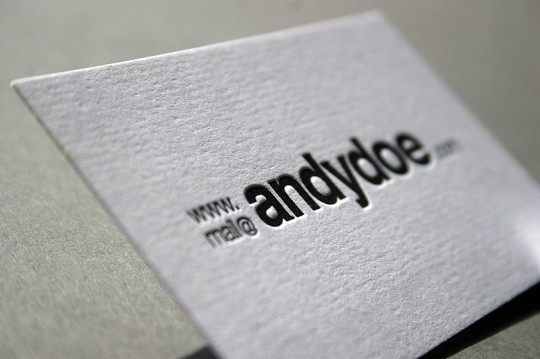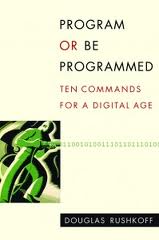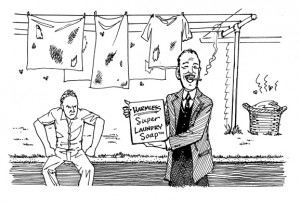Publishing Talks: David Wilk interviews Andy Doe
March 6, 2013 by David
Filed under Ebooks and Digital Publishing, PublishingTalks, Technology, The Future
 In this series of interviews, called Publishing Talks, I have been talking to book industry professionals and other smart people about the future of publishing, books, and culture. This is a period of disruption and change for all media businesses. We must wonder now, how will publishing evolve as our culture is affected by technology, climate change, population density, and the ebb and flow of civilization and economics?
In this series of interviews, called Publishing Talks, I have been talking to book industry professionals and other smart people about the future of publishing, books, and culture. This is a period of disruption and change for all media businesses. We must wonder now, how will publishing evolve as our culture is affected by technology, climate change, population density, and the ebb and flow of civilization and economics?
I hope these Publishing Talks conversations can help us understand the outlines of what is happening in the publishing industry, and how we might ourselves interact with and influence the future of publishing as it unfolds.
These interviews give people in and around the book business a chance to talk openly about ideas and concerns that are often only talked about “around the water cooler,” at industry conventions and events, and in emails between friends and they give people inside and outside the book industry a chance to hear first hand some of the most interesting and challenging thoughts, ideas and concepts being discussed by people in the book business.
I discovered Andy Doe’s writing quite by accident, and a happy accident that was. UK based, Andy comes from the music business. Most recently, he was the COO at classical music label Naxos from 2010-2012, and was head of classical music at iTunes from 2004-2010; now he freelances to help artists, labels and other organizations on recording and marketing activity, both on and offline. He also blogs brilliantly and with a great sense of humor at Proper Discord.
A piece he posted in November, 2012 caught my attention and is one I highly recommend to anyone interested in physical and digital media; it’s called What is Going on with the Record Industry (at New Music Box, a very cool site about new music). It’s a list of ten observations with explications of each. The first one is called “Almost everything you read about the state of the record industry is, at best, totally useless,” which should give you a good idea of where Andy is coming from and where this piece might be headed.
Naturally, I thought it would be fun to talk to Andy about his thinking about the record business and to draw him out on how what has happened and is happening in that industry might apply (or not apply) to the book business. We do tend to think that all entertainment media businesses, including books, music, television, radio, film, video games and even newspapers have similar enough structures and relationships between physical and digital media, as well as similar disruptive innovations as to make the experiences in one useful to the those who work in other creative industries. So we talked about that a bit, as well as how some of what Andy has observed and learned in the music business may not be relevant to book publishing. Overall, because he is such a smart and witty guy, I think this conversation should be of particular interest. As has happened recently, when discussions have been going well, we have gone a bit longer than podcasts usually go. This one is 47 minutes.
Another good reference point I should mention – here’s a written interview with Andy Doe by Tom Manoff you might enjoy as well.
And oh, by the way, this is the 200th interview I have posted on Writerscast since its inception just a few years ago. I’d like to thank all the wonderful writers, technologists and thinkers who have been willing to give me some of their valuable time to pepper them with questions and engage them in my enthusiasms and interests. And I’d also like to thank the individuals who have helped make this project work, my daughter, Emma Wilk, for editing my often poor efforts at recording, website builder and podcast expert Rob Simon of Burst Marketing, and his web guru, Jeremy Brieske.
And in particular I owe thanks to all of you who have listened and responded to this humble effort to contribute to the cultural and intellectual good of all. 
Podcast: Play in new window | Download
Douglas Rushkoff: Program or be Programmed
January 11, 2011 by David
Filed under Non-Fiction, WritersCast
 978-1935928157 – Paperback – OR Books – $16.00 (ebook edition $10.00)
978-1935928157 – Paperback – OR Books – $16.00 (ebook edition $10.00)
with terrific original illustrations by Leland Purvis.
I think this book, Program or be Programmed: Ten Commands for a Digital Age by digital critic and thinker Douglas Rushkoff, should be required reading for anyone interested in modern culture, politics or economics. It’s a short book, densely argued, that requires careful reading and attention to its ideas. Which probably makes it daunting to many in this era of fragmented ideas and short subjects. But it’s divided into ten clear sections (note “commands” as in programming inputs, rather than “commandments” as in biblical instructions) and is well worth the effort a reader must put into reading it.
I spent more time with this short book than with many much longer books I have read recently. And I am very happy I did. As Howard Rheingold says “Thinking twice about our use of digital media, what our practices are doing to us, and what we are doing to each other, is one of the most important priorities people have today.” It’s impossible not to agree. And Rushkoff understands the complexity of behavior and thinking that the always-on, always-connected internet has brought to modern culture.
It’s not about whether the internet is good or bad, or whether online culture somehow supplants a more preferable offline one. As the publisher says about this book, “the real question is, do we direct technology, or do we let ourselves be directed by it and those who have mastered it? “Choose the former,” writes Rushkoff, “and you gain access to the control panel of civilization. Choose the latter, and it could be the last real choice you get to make.”
Having the opportunity to talk about these ideas with Rushkoff was tremendously exciting and invigorating. He’s a really smart guy whose clarity of thought I admire alot. I’ve spent alot of time participating in, reading about and analyzing new media and modern culture myself, and I know I have learned alot from Douglas Rushkoff’s books and ideas. I think Program or be Programmed is one of the most important books I have read in a long time.
Podcast: Play in new window | Download
Publishing Talks: David Wilk interviews Joe Esposito
January 5, 2010 by David
Filed under PublishingTalks
 In this series of interviews, called Publishing Talks, I am talking to book industry professionals who have varying perspectives and thoughts about the future of publishing, books, and culture. This is a period of disruption and change for all media businesses.
In this series of interviews, called Publishing Talks, I am talking to book industry professionals who have varying perspectives and thoughts about the future of publishing, books, and culture. This is a period of disruption and change for all media businesses.
Publishing has been a crucial part of human culture for as long as people have been writing and reading. How will publishing evolve as our culture is affected by technology, climate change, population density, and the ebb and flow of civilization and its economics? Publishing Talks interviews help us understand the outlines of what is happening, and how we might ourselves interact with and influence the future of publishing as it unfolds. Publishing Talks interviews give people in the book business a chance to talk about ideas and concerns in a public forum that are often only talked about “around the water cooler,” at industry conventions and events, and in emails between friends.
I hope that Publishing Talks interviews will give people inside and outside the book industry a chance to hear about some of the thoughts, ideas and concepts that are currently being discussed by engaged individuals within the industry.
I’ve been reading Joe Esposito’s writings about the book business – past, present and future – for quite some time with a great deal of admiration. He is smart, understands business, and cares deeply about books, ideas and people. Here is his “official” biography: Joseph J. Esposito is an independent consultant providing strategy assessment and interim management to the information industries. He has served as an executive at Simon & Schuster and Random House, as President of Merriam-Webster, and CEO of Encyclopaedia Britannica, where he was responsible for the launch of the first Internet service of its kind. Mr. Esposito has also served as CEO of Internet communications company Tribal Voice and SRI Consulting, both of which he led to successful exits. Among Mr. Esposito’s clients have been such technology companies as Microsoft and Hewlett Packard, various publishers of all stripes, and a growing number of not-for-profit organizations (e.g., JSTOR, the University of California Press, and the American Nationals Standards Institute). You can find his writing frequently at Scholarly Kitchen.
My interview with Joe covered alot of different subjects, including his background in publishing, current trends in digital media and e-reading, how publishing will change as it adapts to a digital marketing landscape. We spent a good deal of time talking about publishing strategy relating to e-book publishing, an issue that is important to many in the publishing industry today. His views and ideas, and his delivery of them, makes for a great conversation.
Podcast: Play in new window | Download
Publishing Talks: David Wilk interviews Mac Slocum
December 19, 2009 by David
Filed under PublishingTalks
 In this series of interviews, called Publishing Talks, I am talking to book industry professionals who have varying perspectives and thoughts about the future of publishing, books, and culture. This is a period of disruption and change for all media businesses.
In this series of interviews, called Publishing Talks, I am talking to book industry professionals who have varying perspectives and thoughts about the future of publishing, books, and culture. This is a period of disruption and change for all media businesses.
Publishing has been a crucial part of human culture for as long as people have been writing and reading. How will publishing evolve as our culture is affected by technology, climate change, population density, and the ebb and flow of civilization and its economics? Publishing Talks interviews help us understand the outlines of what is happening, and how we might ourselves interact with and influence the future of publishing as it unfolds. Publishing Talks interviews give people in the book business a chance to talk about ideas and concerns in a public forum that are often only talked about “around the water cooler,” at industry conventions and events, and in emails between friends.
This series of talks will give people inside and outside the book industry a chance to hear about some of the thoughts, ideas and concepts that are currently being discussed by engaged individuals within the industry.
Today’s interview is with Mac Slocum, whose experience is in a variety of different media, including newspapers, books and online media. I know him from his work at O’Reilly’s Tools of Change and his eponymous blog which is among those I read most frequently. He’s currently at the Nieman Journalism Lab at Harvard and freelancing projects in media and here’s his interesting bio from his website:
I am a Web guy. I write, edit, produce, develop, manage and code Web content.
I’ve worked as an online editor, writer and producer at a variety of outlets (publishing, film, TV, electronics, trade, tech, hyper-local, national/international … you name it). Through all of these experiences, I’ve remained committed to the Web as a platform. I love the thing, and I love working to make it better.
My areas of interest/expertise include:
* Development of Web-friendly content (writing and editing)
* Audience development via social media (blogs, Twitter, social networks)
* Web production (HTML, CSS, Movable Type and other content management systems)
* Independent publishing
* Web journalism education
* Pontificating, analyzing and consulting on the future of publishing/journalism, digital distribution, Web content, and audience aggregation (Note: If you’re in a rush, don’t ever get me started on piracy and free content …)
I have organized conferences, spoken on panels, and moderated sessions (and I actually enjoyed these activities).
I teach Web journalism courses at Emerson College and I’m a contributor on Poynter’s E-Media Tidbits blog. I also run a number of independent Web sites and I’m owner of The Fodder Network.
Mac and I had an interesting conversation, covering a range of topics under the overall rubric of media change, how consumers and producers interact, continuing disruption of business models for all traditional media forms, and how those businesses must change in the future, both near term and longer. Mac’s view of the future for publishers is positive and worth listening to.
Podcast: Play in new window | Download
